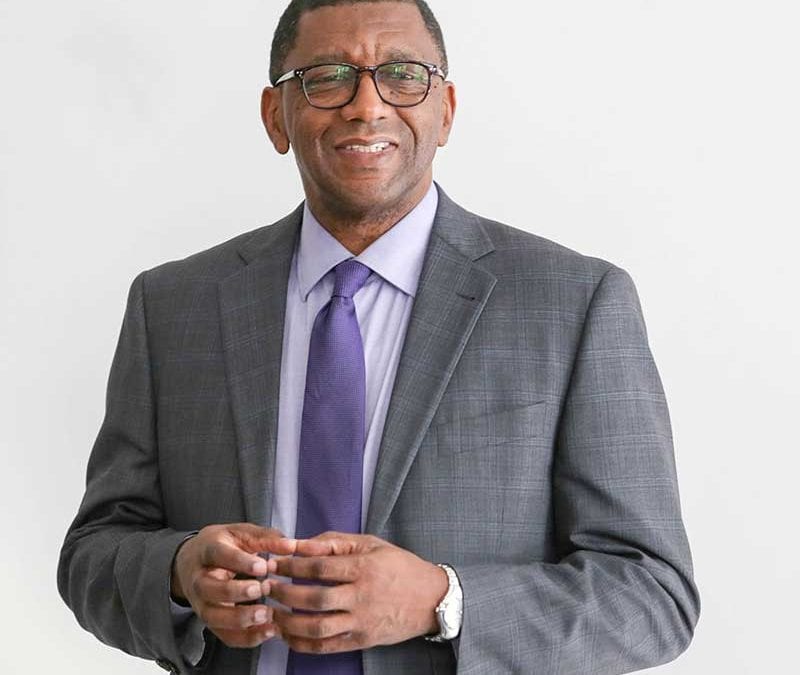Dr. Howard Stevenson, clinical psychologist and professor at the University of Pennsylvania, spent a full day on campus last week to speak with parents, Upper School students, faculty, and staff about his extensive research involving the teaching of emotional and racial literacy skills to families and youth. His expertise in family and parental engagement, African-American psychology, bullying, and racial literacy helped guide the conversations throughout the day within the MFS community.
“To strive for social justice aligns with Quaker values and the school’s commitment to foster a safe, inclusive community, and Dr. Stevenson’s work strengthens us in those efforts,” said Director of Diversity and Inclusion Karen Washington.
During his visit to one of the eleventh grade World Religions classes, Dr. Stevenson focused his discussion on the roles of race and ethnicity in the dialogue of the conflict between and among communities in the world. In particular, he highlighted the importance of racial literacy training, or the ability of individuals to respond positively in stressful racial encounters.
To demonstrate the effects and benefits of proper training, Dr. Stevenson led the students through an exercise in which they discussed a memory from their childhood where they received a verbal or nonverbal message regarding race. After sharing a memory with a partner, the class reflected upon what emotions the memory brought up and where in the body the emotion was felt. Next, the students shared with a partner how they would respond if a sibling or close family member was in danger and the emotions their body experienced.
Through these exercises, the class was able to gauge their level of self-awareness when imagining a situation with conflict or tension. By calculating the intensity of emotions experienced, locating where in the body the emotions were felt, and understanding how those physical reactions were translated in the mind, the students were practicing how to monitor themselves in moments of conflict. With additional guidance and exposure to more practiced conflict situations, students could become trained in the habit of acting just in racial encounters.
“It’s not just the ideas and beliefs of social justice that matters, but the ability and habit of doing justice when the time comes,” said Dr. Stevenson. “By practicing racial literacy, we can learn to not be so fearful and learn to problem-solve together, rather than run away from conversations about race.”
Dr. Stevenson’s visit was sponsored by Parent Council.

